When and Why I Decided Against Attending an 'Elite' University
Welcome to The Academic Inferno, our new series exploring antisemitism and other morally-confused ideologies.
This is one of our new series at God of the Desert Books, exploring and analyzing this question which has preoccupied many minds after watching the pro-Hamas demonstrations at colleges around the country since the terrorist group’s atrocities on October 7, 2023:
What the hell is the matter with academia today?
After 20 years of wrestling with this apparent mystery, I have a few answers. And you’re probably not going to like them.
This is the first installment in The Academic Inferno. Click here to see the 90 installments in our previous three series on war and hate. And click here to check out the first installment in our parallel series, Hostage Liberation News.
The questions regarding the problems in post-secondary education today first emerged as primary challenges for me 20 years ago, beginning as a student dabbling in political ideology and then as a young adult who stumbled into this strange swamp of ideas as a full-time profession. Further, the last eight months of seeing the pro-Hamas demonstrations on campus - writing about them almost daily as a reporter - have provided me ample opportunity for further reflection.
In this series, I'll begin to explore what I've seen so far and offer some tentative conclusions about the necessary steps forward: not just for the college and university landscape, but within K-12 education as well, as it too requires desperate systemic transformation. I discourage people from seeing K-12 and higher education as separate entities. The roots of the problems in education for children, adolescents, and adults are the same.
There is one issue that stands above all others as the most difficult to solve; it may even be insoluble for a number of reasons. I will explain that explicitly, rudely, and unapologetically in the next installment. But first, it seems necessary to make clear the background and biases I bring to this subject, and when they first formed.
Admittedly Strange Priorities for a 13-Year-Old
I have written about my difficult adolescence before, most notably here, where I detailed the emotional and physical abuse I experienced at my peers' hands and how I never really got over it.
In the same way, I don't think I've ever really recovered from a blow to the head I received while being pinned under a rug and beaten up at a birthday party, receiving what we thought at the time was just a concussion.
So I really regard the K-12 system as a place where kids like myself - the "weird" individualists, artsy, intellectual, non-conformists, or LGBTQ+ - are abused and often psychologically or physically scarred for life.
College — in which adults have the freedom to control their own education — was a much more positive experience in every way, laying the creative writing and political analysis skills which became the foundation for the career I have now.
Now, what decision did I make that led to such a positive higher education experience — and that even contributed to diminishing the unpleasantness of high school?
In 7th or 8th grade — around the time of the traumatic assault I experienced — I made the conscious choice that working to try and get straight A's, a perfect SAT score, and engaging in a boatload of "extracurricular activities" to try and impress some admissions official were not necessary for what I wanted to do with my life.
Even back then, I aspired to the career which I now have: to be able to sit and write all day, full time, on subjects that I cared about. I initially wanted to learn how to write novels and screenplays.
So why would I need to go to some "elite" school with a fancy name and reputation, which would be astronomical in cost, when really, I could learn these writing skills at any number of much cheaper schools that were much easier to enter?
The Pursuit of Skills and Knowledge - or “Connections” and “Prestige”?
For me, what was not important in a college education was having a piece of paper acting as a certification of my supposed competence. I wanted to develop real-world skills. I did not want a career reliant on "connections" or dependent on impressing people with having gone to a school that, we all know, doesn't admit people just because they're smart and they "deserve it." They offer unfair affirmative action not just to minorities — cruelly putting them into schools which are not the right match for them, as Thomas Sowell has argued for decades — but also athletes and "legacy" admissions.
So literally from junior high on, I knew that if I just stayed in the B+/A- range - excelling at A-level in English, history and other verbal subjects, while managing C-B range in math and science - then that would be enough to attend a state school like Indiana University (where I had planned to go all my life) or Ball State University (where I ultimately chose to go after attending summer journalism workshops and learning they had a decent English department).
And that meant that, as miserable as high school was, at least I knew that I didn't have to break myself getting perfect grades in subjects where I didn't have the natural aptitude. I now suspect that some of that is due to diminished memory abilities likely caused from the head injury in junior high.
And as high school began and I started to see just how hard it was to memorize foreign words and verb tenses in introductory Spanish, maybe it also became even clearer that the education world was not really interested in valuing people like me, and not just because I was a “weird” writer.
I did not have the ability to memorize a bunch of seemingly meaningless data and then regurgitate it the next day or week on a test. Now, if it was an essay test or one asking longer questions, then I was fine - I could explain the ideas and concepts in my writing. But I couldn't keep in my mind data that had no intrinsic meaning to me. I still struggle with this: remembering phone numbers and addresses, keeping in my head all the numbers when you get an alert to verify who you are from a website. I could generally manage multiple-choice tests of memorized data, but if I was forced to recall facts and vocabulary just from memory, I was often doomed.
Meanwhile, for subjects that do make an emotional connection with me, my head’s filled with bizarre this and that. Want me to start running down the list of Muslim Brotherhood front groups and their top operatives? Perhaps you’d like me to do the same with the far left and the far right? Need summaries of Virginia Woolf’s books,
’s, Alan Moore’s, and so on? No problem remembering boatloads of facts and memories when I can can tie them to emotional meaning.How about listing Martin Scorsese’s entire filmography in chronological order, naming details like stars, producers, screenwriters, even the catering companies which provided the crew with sandwiches? (Just kidding on that last point — my insanity has its limits.)
All of this is to say that, in the value system of both K-12 and many college classes, I'm not as “smart” as the person who just has the innate ability of strong recall. Oh, you’ve got a photographic recall and can recite names in order out of the telephone book? Congratulations, welcome to the “Ivy League” institution of your choice.
So just as I came to see that the American education industrial complex did not value me enough to protect me from bullying, it likewise did not value me enough to respect that people with poorer memories like me are just as smart, just as valuable, and just as capable of achieving in meaningful ways as anyone else.
Luckily, I did get what I needed from my college experience - but I recognize now that this may only be because I was fortunate enough, as a teenager, to be correct in my assessment of what I would need and want from a career in adulthood. I know that many kids aren't that lucky.
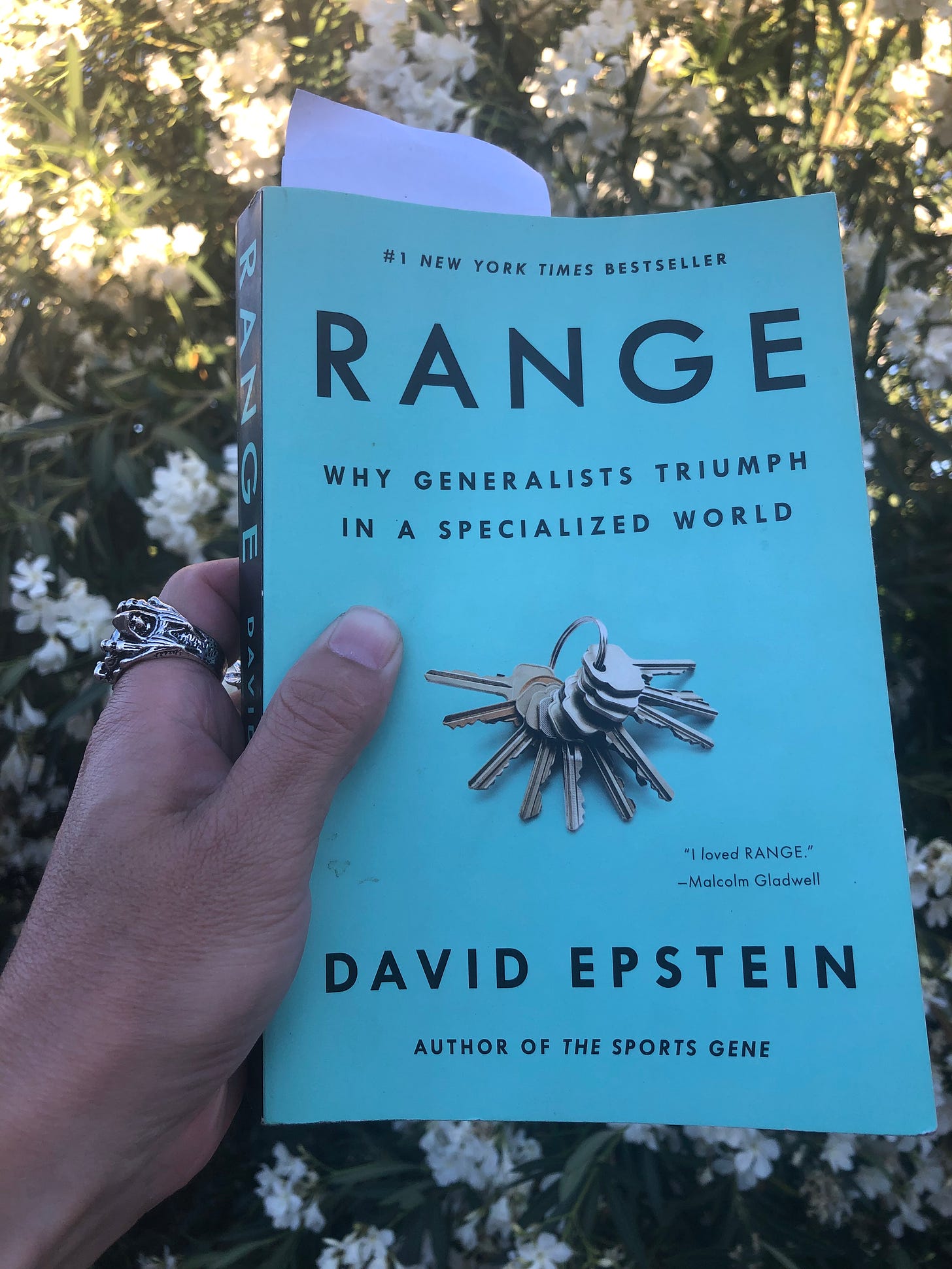
People with great ability to memorize shit should not be put in a place of honor merely for their biology and/or luckiness in not receiving a head injury as a teenager. Those lucky enough to be physically strong, tall, and thus natural athletes should not be held up in places of honor merely for their biology and the luck of cultural encouragement.
“Oh, look how tall you are! You’re our new basketball center! Oh, look how big and bulky you are! What a great linebacker you can be!”
It’s so very cruel: gifted athletes are welcomed into so-called "elite" institutions where they are likely to fail academically and emerge after four years of breaking themselves for sports without the professional abilities they could have had if they, too, were valued for more than just how much they could fuckin' entertain people watching the games.
So all this to say: I have absolutely zero sympathy or respect for the so-called "elite" colleges with all their Jew-hating Middle East Studies departments and morally-confused, overpaid administrators.
You want an education? Go to the library. Then aim for the state school that isn't expensive and isn't high-stress, where you can actually learn a fucking useful skill.
All colleges aren't terrible. The far-left ideology, postmodernism, and Islamism that has poisoned schools like Columbia, MIT, and Harvard is not evenly distributed across all schools. There are tons of colleges which do not have antisemitic protesters or administrators who wouldn't know evil if it bit them in the ass for dinner.
But that there are some schools where one can still buy an education does not mean that the system itself is not systemically flawed, and I'll explain the top problem in the next installment.
Here’s a hint of what’s coming. These are the books which will most guide the series' understanding of the falsehoods and evils which have poisoned so many universities.
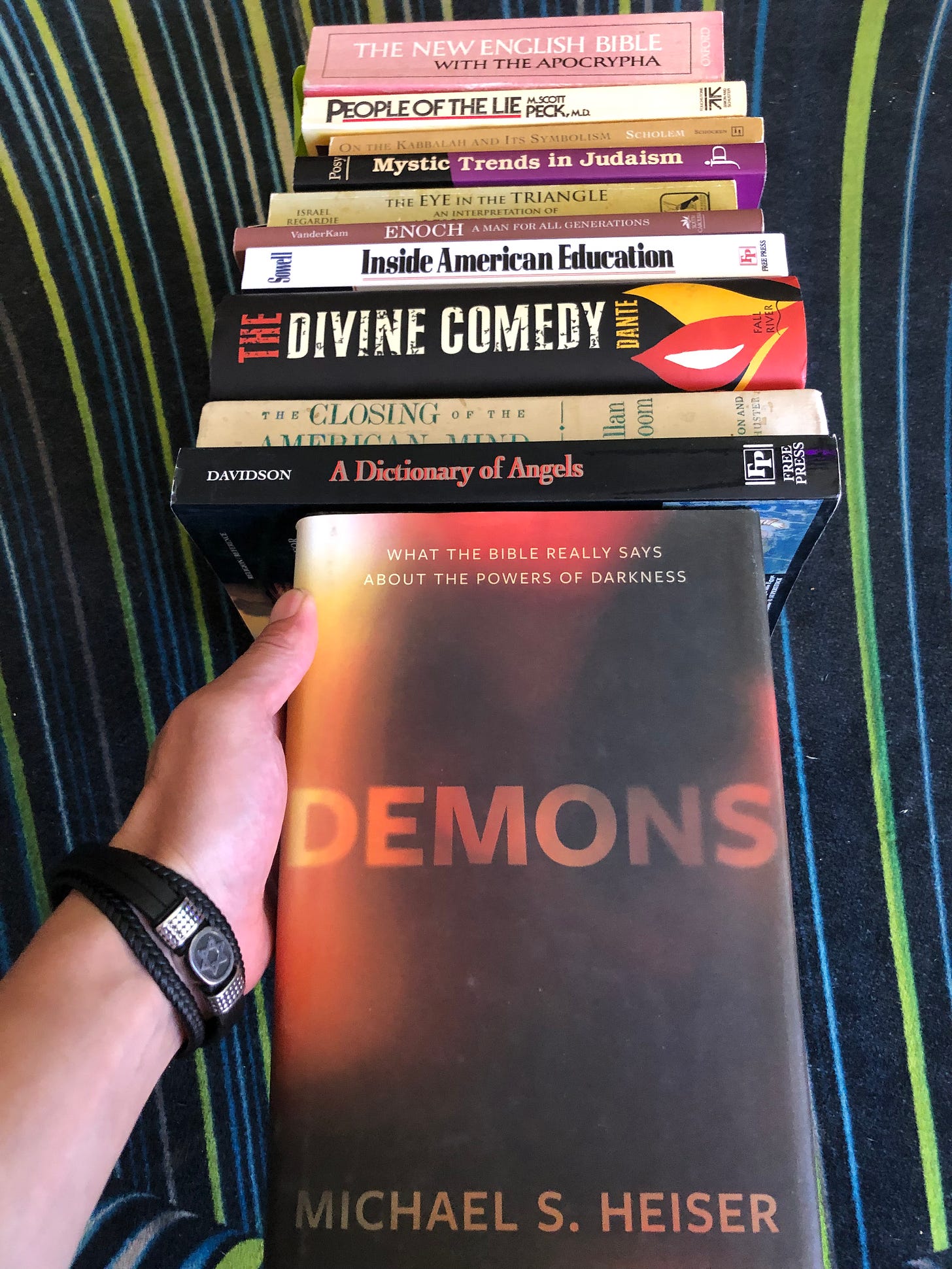
See my previous writings related to higher education at this Substack:


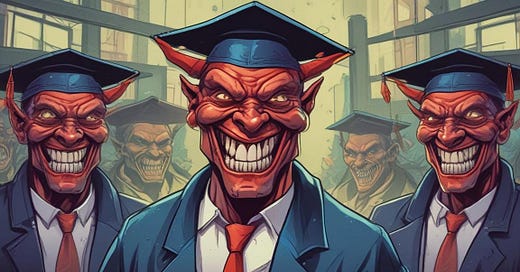



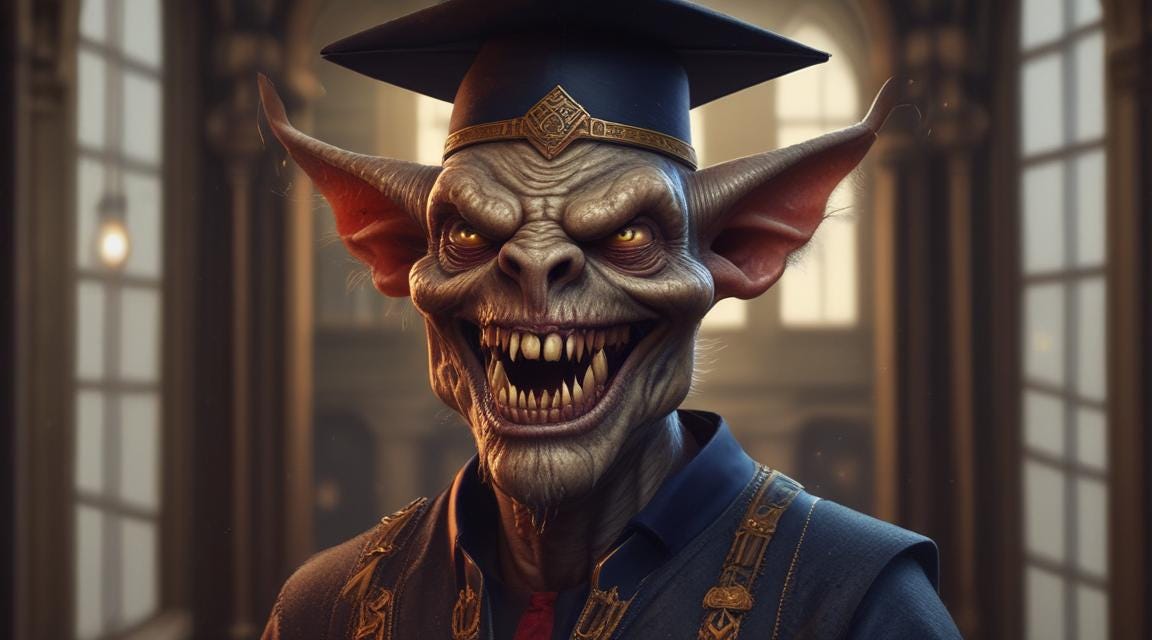
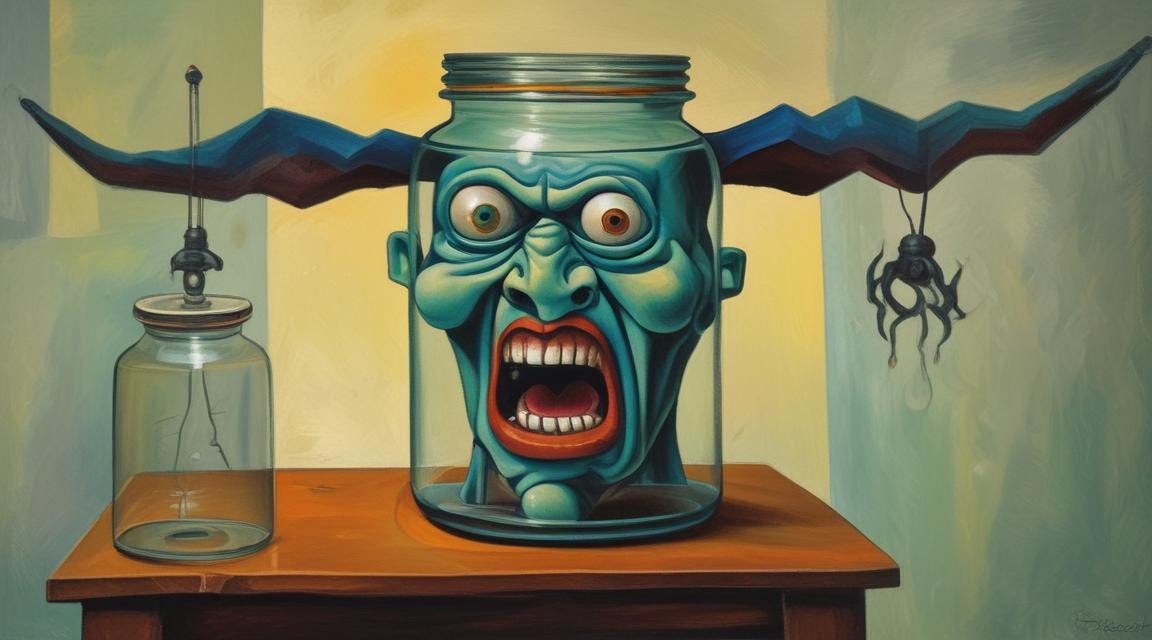
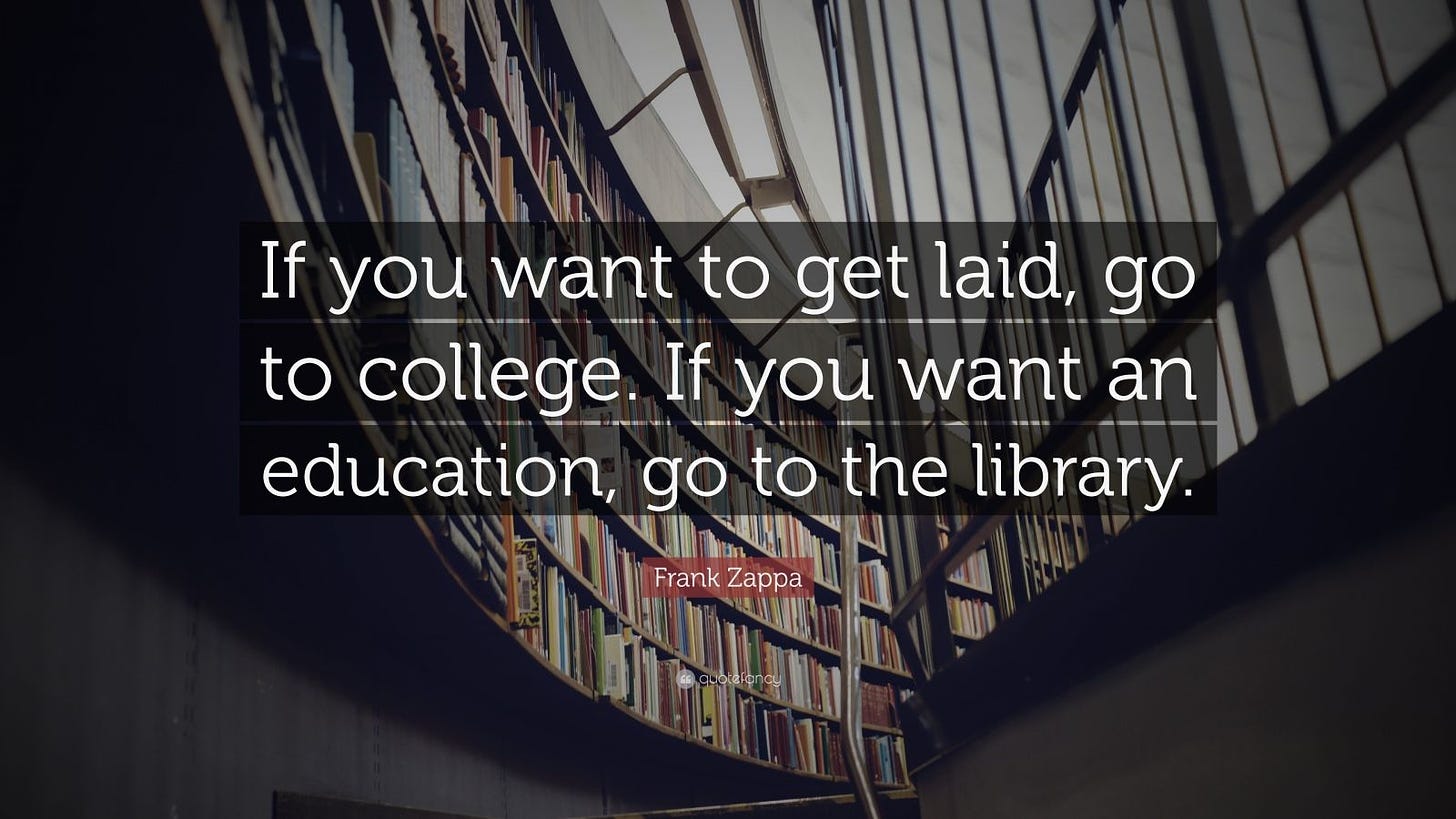
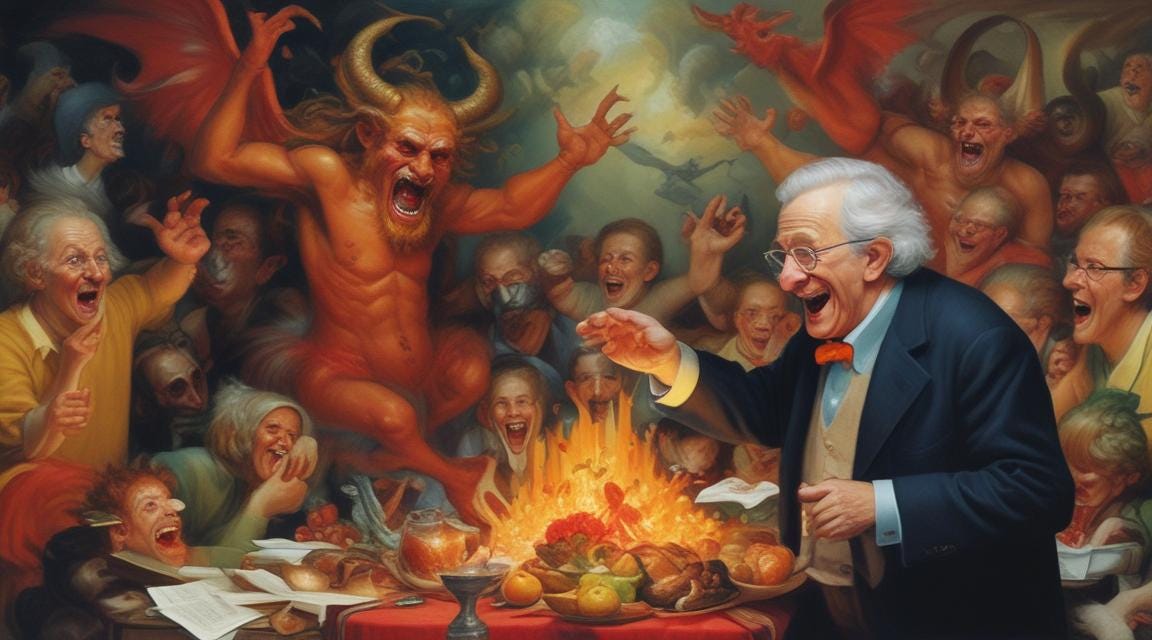
I didn't realize what I was capable of academically until it was pretty much too late to actually go to an *elite school." Honestly, glad I didn't. I went to a State school, met my wife in the process and still live in my College town. My college experience was excellent.
I love education, I am friends with professors, I value knowledge. Some of what I see coming out of "elite schools" is alien to me. However I also know I am not getting the full picture. I never will. That's okay.
It does seem like random controversies from Ivy league schools get way more press than they probably deserve just because the people that are entrenched in the US power structure often attended one of them.
Sounds great. Looking forward to this series.